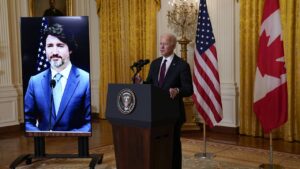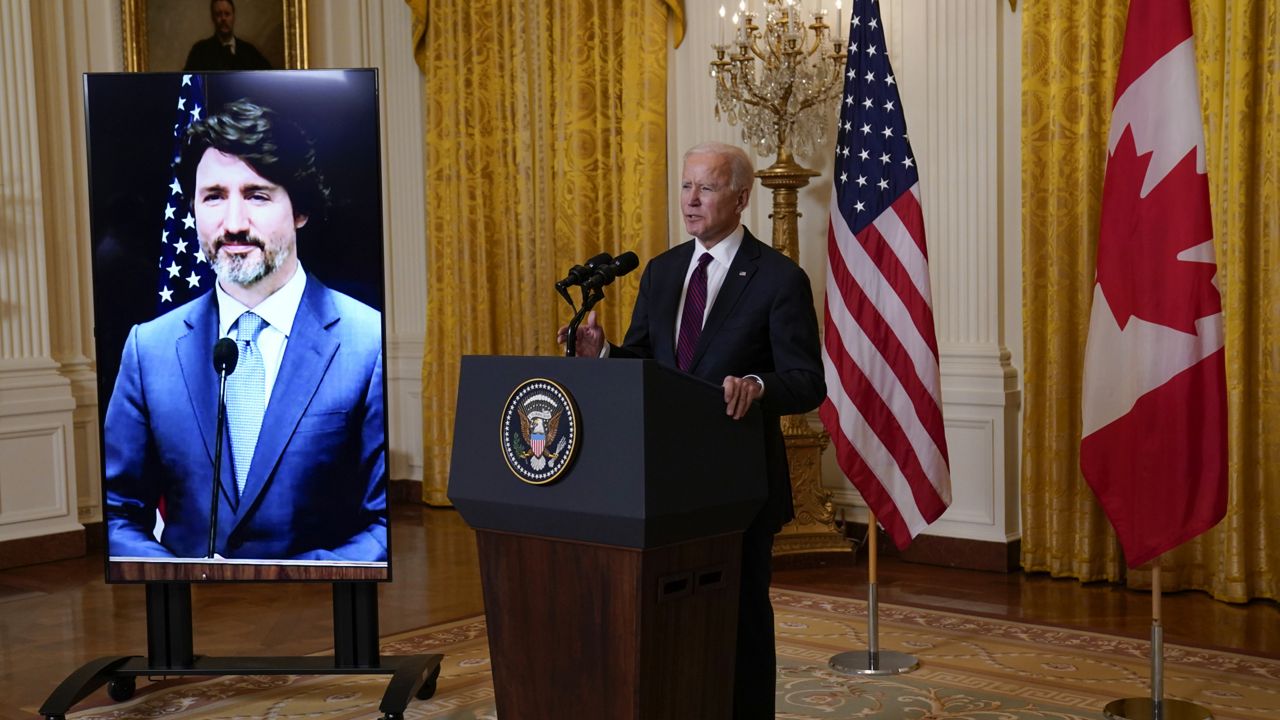Climate, energy, Covid in agenda for the “Three Amigos”

TORONTO – Ottawa, June 29, 2016. Justin Trudeau, along with U.S. President Barak Obama and his Mexican counterpart Enrique Peña Nieto, chairs the North American Leaders’ Summit (NALS), better known as the Three Amigos Summit. Since then, the leaders of the three countries have not met again. The break, which lasted over five years, was wanted by the previous Us administration led by former President Donald Trump and, last summer, by the uncertainties caused by the Covid-19 pandemic. Now, we are facing the turning point, with an attempt to normalization relations between Canada, the United States and Mexico.
Relations between the three countries in recent years have suffered, and a lot, from the unilateral approach imposed by Trump himself and the waste caused by the long and troubled negotiations for the approval of the new NAFTA. Since that summer summit five years ago, two of the three main protagonists have changed. In place of Enrique Peña Nieto we find the new Mexican president Lopez Obrador but above all we have a new tenant of the White House, Joe Biden. That said, frictions and pain points remain between Ottawa and Washington that will need to be resolved. The first is that relating to energy resources with the node of pipelines that so many consequences is causing in our country.
As soon as he was elected, Biden signed an executive order essentially ending the project to extend Keystone XL, the pipeline that connects the tar sands areas in Alberta with the oil refineries of Texas. And the province governed by Prime Minister Jason Kenney, for the stop wanted by Biden, has suffered a heavy economic impact estimated at many billions of dollars. Kenney himself accused Trudeau of not doing enough to protect the interests of Alberta and, consequently, Canada vis-against the United States.
The topic of energy, of course, is on the agenda of discussion of the Three Amigos summit, scheduled for Thursday in Washington. But that’s not all. The three leaders will discuss climate change – a theme intimately linked to energy – in the light of the signing of the Glasgow agreement during the UN COP26 Summit, a downward agreement that leaves little to be desired and that disappointed those who expected a more courageous step forward by the international community in the fight against pollution and climate change.
Among the issues that will be addressed, then, we find the possibility of a coordinated response to the challenge launched by the pandemic, the situation in Afghanistan after the withdrawal of NATO troops and the return to power of the Taliban and more generally the prospects for recovery and economic growth after the stalemate caused by the anti-Covid lockdowns.
Finally, Canada is concerned about the possibility that, under president Biden, the US will opt for a green turn also in the automotive sector with the risk that there may be repercussions in terms of employment in the car plants in Windsor, Brampton and Oshawa. Here, too, the expectation for the results of the summit is growing, because the consequences will be of great importance.



